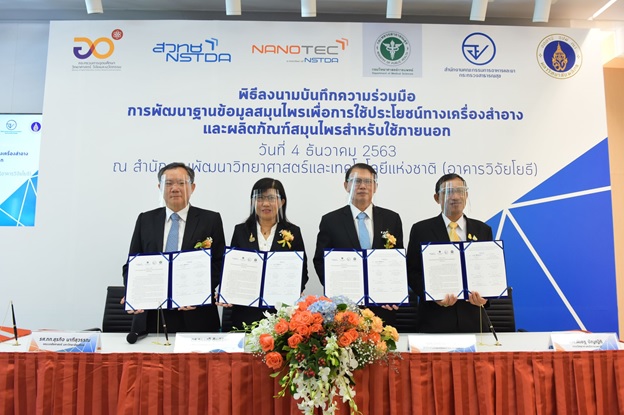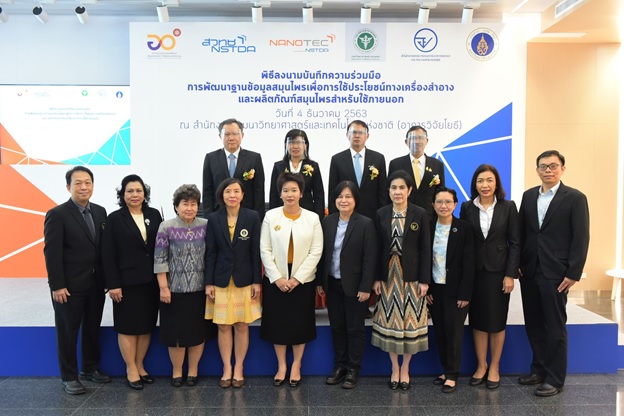NSTDA and three partners, namely FDA Thailand, Department of Medical Sciences and Faculty of Pharmacy, Mahidol University, recently launched the collaboration to establish a database of Thai medicinal plants for cosmetics and herbal products intended for external use. The database aims to support Thai herbal product industry in developing high-quality and safe cosmetics and herbal products with comprehensive scientific data and facts as well as applicable regulations.

The database will be ready for public access in late 2021 containing at least 50 medicinal plants, including black ginger (Kaempferia parviflora), cassumunar ginger (Zingiber cassumunar), turmeric (Curcuma longa) and Asiatic pennywort (Centella asiatica) – four plants identified as product champions in the national herbal product roadmap. This list is expected to reach 1,000 plants within 5 years.
During the 1st phase, 2021-2025, focus will be on establishing key information of Thai medicinal plants, such as their geographical distribution, botanical characterization, traditional uses, bioactive compound, toxicological, pharmaceutical and safety information, scientific publication, applicable laws and regulations and FDA Thailand registration status. Further scientific information such as whole genome sequences, genetic diversity, phytochemical profile, bioassay data and interaction between active compound and cell will be added in the following phase.
NSTDA’s tasks will be carried out by its two units, namely NANOTEC-NSTDA and the National Biobank of Thailand.

